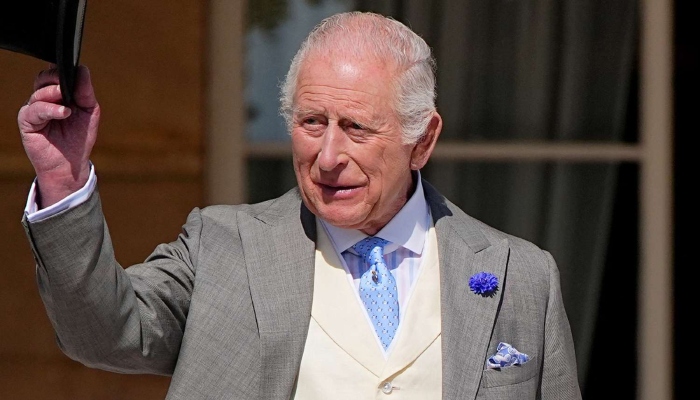King Charles Health: A Closer Look at the Monarch’s Well-Being

King Charles Health When you think about royalty, images of grandeur, palaces, and tradition often come to mind. But behind all that glitter lies something very human—health. King Charles, much like any other person, has his fair share of health matters that the public watches closely. From his lifestyle habits to the impact of stress and his aging years, there’s a lot of curiosity about how the King takes care of himself. In this article, we’ll dive into everything you need to know about King Charles’ health—his fitness, diet, challenges, and even the role of public life in maintaining (or straining) his well-being.
The Public Fascination with King Charles’ Health
There’s no denying that the King Charles Health of a reigning monarch is always of public interest. From a historical perspective, people have always wanted to know how strong their king or queen is, since it symbolically represents stability for the nation. King Charles is no exception. His health updates are often reported in the media, and even minor medical details make headlines.
The fascination also comes from the fact that King Charles Health ascended the throne at an age when most people are enjoying retirement. That naturally makes the public even more curious about his physical stamina and mental resilience. At 70-plus, he is stepping into a role that requires international travel, constant appearances, and a great deal of stress management. It’s only natural to wonder how his body and mind are holding up under such demands.
Beyond that, King Charles Health is also a matter of continuity. The British monarchy thrives on tradition and stability, so the King’s well-being represents the strength of the institution itself. Whenever he makes an appearance looking energetic, it reassures the public that the monarchy is in steady hands.
King Charles’ Approach to Fitness and Exercise

King Charles Health has always had a reputation for being outdoorsy and active. Unlike some who might slow down in later years, he has consistently shown interest in maintaining an active lifestyle. Whether it’s hiking through the Scottish Highlands or gardening on his estates, Charles seems to enjoy movement not just as a health necessity but as part of his identity.
He has long been a fan of walking and hiking, which are excellent low-impact exercises that improve cardiovascular health without putting too much strain on aging joints. In addition, King Charles Health has been spotted engaging in polo during his younger years, a sport that demands both agility and stamina. While he no longer plays as actively, the years of training and physical discipline have likely left a lasting impact on his overall health.
It’s worth noting that consistency is key when it comes to fitness, and King Charles demonstrates this well. By staying active regularly rather than in short bursts, he manages to sustain his energy and avoid the sudden wear and tear that comes with inactivity followed by extreme effort. His approach shows that fitness in later life isn’t about doing more but doing what works best for your body over time.
Diet and Nutrition: How King Charles Fuels His Body
King Charles Health has often spoken about his commitment to healthy, sustainable living, and this extends to his diet. He’s known for his strong advocacy of organic farming, which makes perfect sense given his long-time involvement with the environment and sustainability. His personal food choices often reflect that philosophy.
Reports suggest that King Charles Health prefers fresh, organic produce and often avoids heavily processed foods. He is also known to enjoy eating a largely plant-forward diet, though not strictly vegetarian. This balance allows him to take in essential nutrients without overwhelming his body with processed sugars or unhealthy fats. For someone in his position and age, that’s a smart choice.
Interestingly, King Charles Health has also been described as someone who prefers smaller meals spread throughout the day rather than heavy feasts. This style of eating can aid digestion, regulate energy levels, and prevent the sluggishness that often follows large meals. Combined with his active lifestyle, this nutritional balance helps him maintain stamina even during packed royal schedules.
Stress and Mental Health in Royal Life
It’s easy to overlook the mental health challenges of a monarch, but the role of King Charles Health comes with enormous pressure. From public scrutiny to political balancing acts, the stress he faces is relentless. And stress, as we know, has a direct effect on overall health.
King Charles Health has often been described as someone deeply thoughtful and sometimes even sensitive to criticism. That means he may feel the weight of his responsibilities more keenly than some of his predecessors. However, he also seems to have found healthy outlets for stress relief. His love of nature, painting, and classical music are not just hobbies—they’re therapeutic practices that help him maintain balance.
It’s important to recognize that mental well-being directly influences physical health. Stress can affect sleep, digestion, and even heart health. By engaging in mindful and creative practices, Charles may be giving himself the tools to cope with the enormous expectations placed on his shoulders. This approach reflects the broader idea that health is holistic—it’s not just about exercise and food but also about managing the mind.
Age-Related Challenges: A Realistic Look
No matter how active or careful one is, aging brings natural challenges. King Charles Health, now in his seventies, is certainly no exception. From joint stiffness to fatigue, it’s expected that he deals with the typical realities of growing older. However, what sets him apart is how he manages these changes.
Instead of shying away from physical activity, he has adapted his lifestyle to his age. For example, while he no longer plays high-intensity sports like polo regularly, he has replaced them with gentler but equally beneficial activities. This kind of adjustment is crucial in aging gracefully—understanding limitations while still staying engaged.
There’s also the question of medical care. As the King, Charles naturally has access to the best healthcare services in the world. Regular check-ups, preventive care, and immediate attention to any King Charles Health concern give him an advantage in maintaining his well-being. While this doesn’t make him immune to age-related issues, it certainly places him in a strong position to manage them effectively.
Public Image and Health Speculation
Whenever King Charles Health appears in public, people analyze his health—sometimes fairly, other times excessively. If he looks tired during a state event, speculation arises. If he appears more vibrant than usual, the media praises his energy. It’s part of the royal reality: health becomes a matter of public discussion, whether accurate or not.
This constant scrutiny can be a double-edged sword. On the one hand, it keeps the monarch accountable for maintaining his health. On the other, it can exaggerate minor details into unnecessary worries. For instance, a cough or momentary fatigue could be blown out of proportion simply because it’s happening in front of cameras.
Despite the speculation, Charles seems to carry himself with resilience. By consistently showing up for his duties and engaging warmly with the public, he demonstrates that he is capable of handling the physical and emotional demands of kingship. It’s a reminder that appearances can sometimes be misleading, and what matters most is long-term consistency in King Charles Health rather than momentary impressions.
What King Charles’ Health Teaches Us
There’s a broader lesson in watching King Charles Health approach to health. It reminds us that taking care of oneself is a lifelong journey, not something to start only when issues arise. His dedication to organic food, staying active, and finding balance through creative outlets shows that health is built day by day.
For many people, especially those in their later years, Charles’ lifestyle offers inspiration. It proves that age doesn’t have to mean inactivity or decline. Instead, it can be about adjusting habits, finding joy in movement, and nurturing both body and mind. The King’s example underscores the importance of consistency and moderation, two elements often overlooked in favor of quick fixes.
Conclusion: A Monarch Who Values Well-Being
King Charles’ health isn’t just a personal matter—it carries symbolic importance for the monarchy and the nation. But beyond the public role, what stands out is his personal commitment to well-being. By staying active, eating thoughtfully, and nurturing his mental health, Charles demonstrates that even under immense pressure, it’s possible to live a balanced life.
Of course, age brings its realities, and speculation will always swirl around the health of someone so high-profile. Yet, his example shows that caring for health isn’t about avoiding challenges but meeting them with adaptability and wisdom. Whether you’re a royal watcher or simply someone looking for inspiration, King Charles’ approach to health offers valuable lessons for us all.



